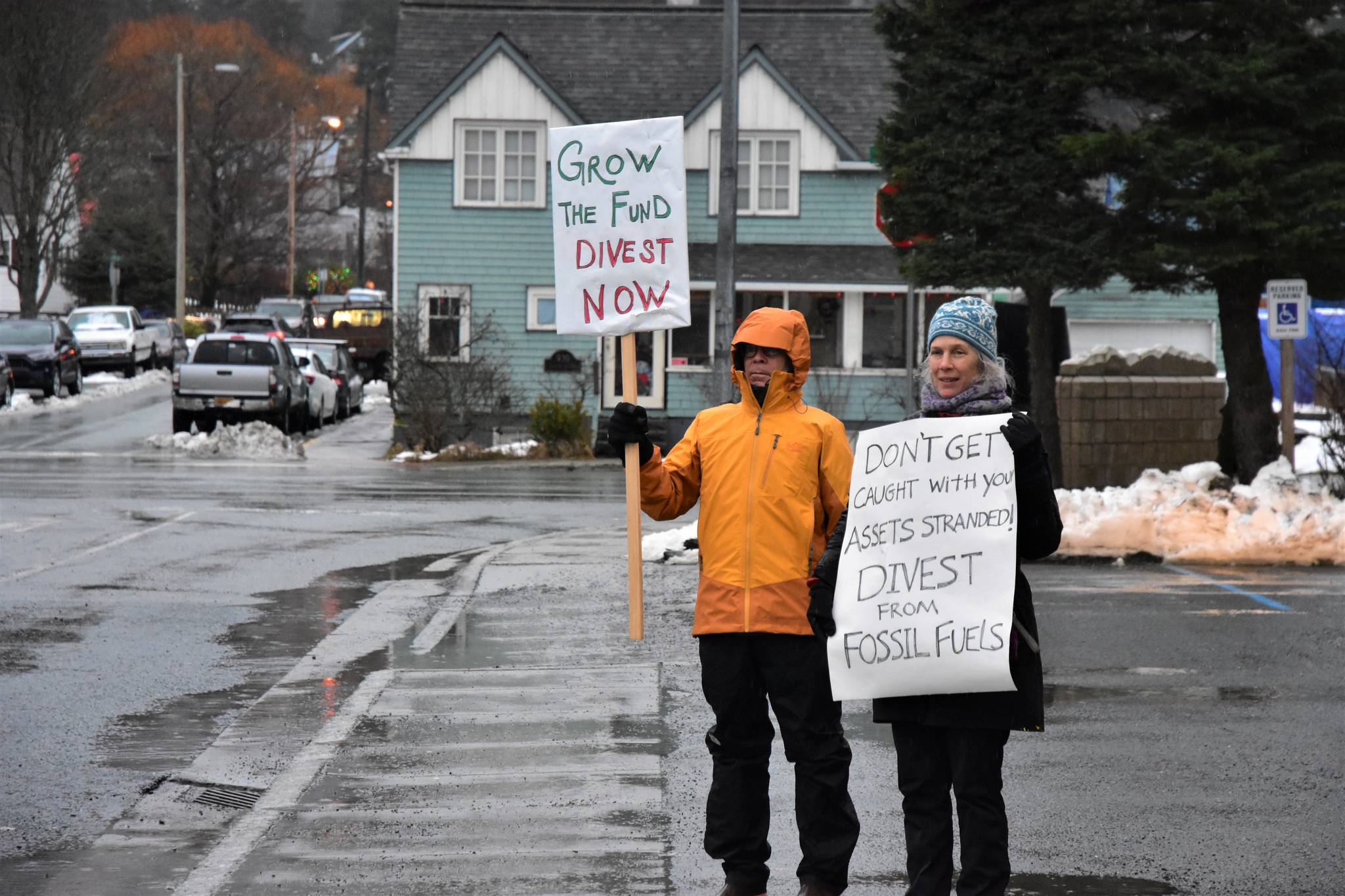Members of local environmental group 350Juneau Wednesday once again asked for the Board of Directors of the Alaska Permanent Fund Corporation to divest from fossil fuels.
“Please tell the Alaskan public how the Corporation will deal with the substantial financial risk created by the climate crisis,” said Doug Woodby, co-chair of 350Juneau, during the public comment period at the beginning of the board’s quarterly meeting.
Woodby said that in his review of the board’s meeting materials, the word “climate” was used only three times, and those instances were only in reference to public testimony. Woodby made reference to several other wealth management groups which had committed to breaking their relationship with fossil fuels and committing to investments in clean energy.
The Royal Bank of Scotland, the European Investment Fund, and Goldman Sachs as well as a number of other large financial groups have already made decisions to divest, and it was time for APFC to do the same, Woodby said.
Michael Tobin, another member of 350Juneau who testified Wednesday, told the board fossil fuel investments were becoming too risky, and the Fund has a fiduciary responsibility to divest from fossil fuels.
“For young people, investments in oil and gas companies are almost impossible to defend from a fiduciary perspective,” Tobin said. “For most of your beneficiaries fossil fuel investments are too risky, with potentially negative returns over the medium and long-term.”
350Juneau has made this request to APFC before and in a 2018 letter the board said the fund had already decreased its investments in fossil fuels down to 2.7% in 2018 down from 7.5% in 2011.
The Permanent Fund was originally created as an mineral wealth fund but has since diversified its assets to the point where oil revenues constitute only a small portion of its returns, according to AFPC’s 2019 annual report.
APFC did not immediately respond to a request for comment, but the 2018 letter Board Chair William Moran and CEO Angela Rodell wrote, “as fiduciaries of the Fund…APFC has a duty to consider the financial risk and reward of various investments and to not use non-financial investment criteria such as social or environmental impacts when making investment decisions.”
But, they went on to say, the Fund invests with a long-term strategy that looks at an assets viability well into the future. Referring to the declining share of fossil fuel based assets, the letter said, “this indicates that both our internal and external managers believe these companies do not contribute the same value today as they did in 2011.”
The letter then says, “we invest in companies, not causes.”
As of Dec. 31, 2019, the Permanent Fund had $66.9 billion in total value, according to APFC. According to the 2019 report, the largest share of the funds value is in private equity, or shares owned by the Fund.
But when Goldman Sachs announced it was updating its environmental policy to not invest in any new Artic drilling projects, Gov. Mike Dunleavy ordered the state to remove the bank from its list of participators in the Alaska Tax Credit Certificate Bond Corp.
In a letter to Goldman, acting Department of Revenue Commissioner Mike Barnhill wrote, “this policy is in direct conflict with the goals of the State of Alaska and threatens Alaska’s oils and gas industry, one of the State’s primary revenue sources and economic drivers.”
In his statement to the Board of Directors, Woodby asked APFC to consider, “is it time for the Permanent Fund Corporation to do what is in its purview, to accelerate divestment of its fossil fuel holdings that are dragging down returns?”

